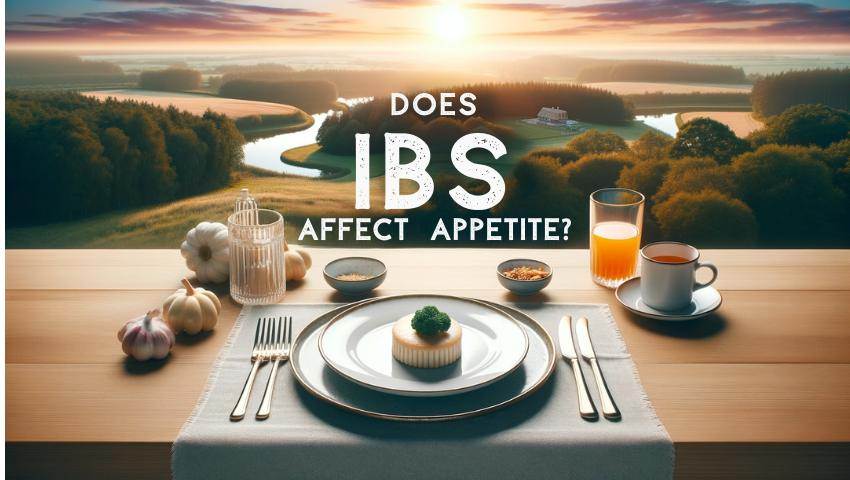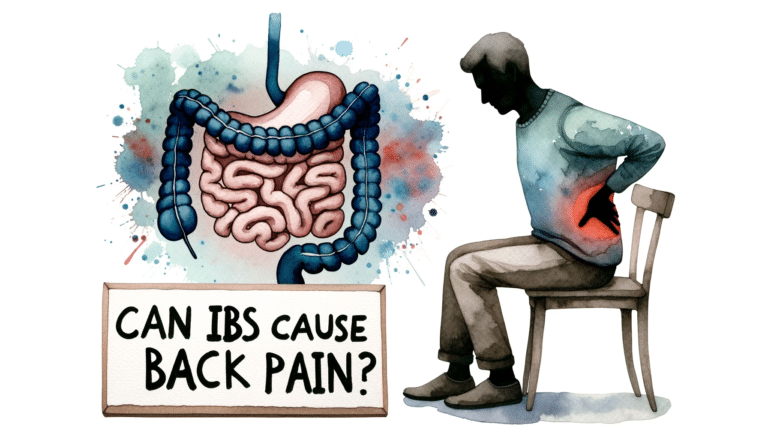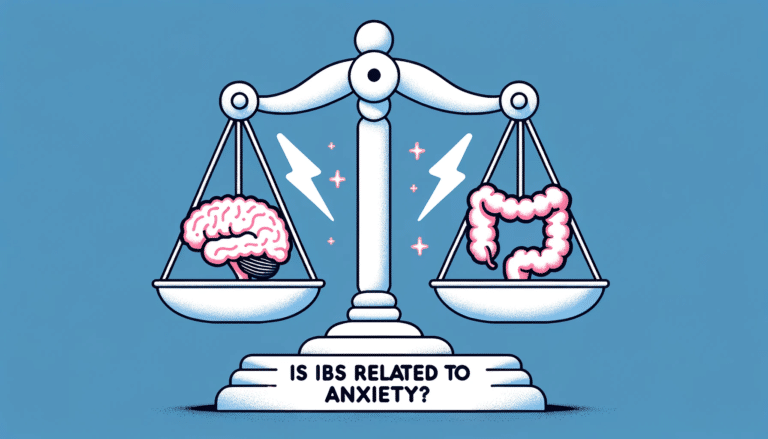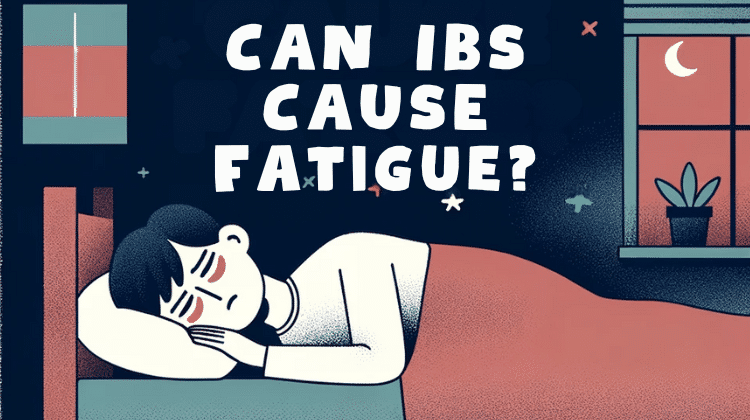Does IBS Affect Appetite? How Irritable Bowel Syndrome Impacts Hunger

Is your appetite dwindling, though your favorite dish is bang in front of you?
As someone who’s been there, done that, I can tell you this. Yes, IBS (Irritable Bowel Syndrome) can affect your appetite.
It’s a complex dance between your gut and brain, sometimes leaving you without the desire to eat.
But there’s more to this story – so grab a seat, if your curiosity is piqued, and continue reading as I delve deeper into the question – does IBS affect appetite?
The Appetite-Irritable Bowel Tango: What’s Cooking?
Hunger Games: Disrupted by IBS
If I had a penny for every time I wondered if my IBS had something to do with my irregular appetite, well, you know how the saying goes.
It’s not just you – many other IBS sufferers have experienced the mysterious vanishing act of appetite.
When your gastrointestinal system decides to throw a party, complete with bloating, discomfort, and irregular bowel habits, your appetite might decide to pull a disappearing act.
The big question: why?
The Culprits: Unmasking the IBS-Appetite Connection
Symphony of Symptoms: IBS in the Limelight
Here’s the twist – IBS isn’t just about that pesky abdominal pain or those relentless bathroom runs. It’s like a maestro conducting a symphony of symptoms that can impact your appetite.
Researchers have spotlighted that certain gastrointestinal symptoms, like feeling nauseous or having trouble with your digestive tract, can set the stage for appetite loss.
The Fiery FODMAPs: The Unwanted Guests
Ever heard of FODMAPs? These aren’t some secret code words; they’re a group of carbohydrates that some folks’ digestive systems just can’t handle.
You might find them lurking in certain foods, triggering an IBS flare-up that could send your appetite packing. It’s like your digestive system threw a “No Entry” party for these uninvited guests.
The Plot Thickens: Factors Influencing Appetite
Mind Over Matter: Psychological Factors
Your brain and gut? They’re like old pals who can’t stop talking. Stress, anxiety, and even depression – they’re not just a figment of your imagination, but potential players in the appetite-loss game.
When life dishes out the stress, your gut might raise its hand in protest, leading to that familiar loss of appetite.
Gut-Brain Chat: The Hormonal Tale
Hold onto your metaphorical hats, because hormones are about to take the spotlight. Peptide YY, for instance, is that hormone that plays a role in regulating your appetite.
Guess what? Studies have shown that IBS might just affect this hormonal chatter, leading to a topsy-turvy appetite situation.
Finding Your Way: Navigating the IBS-Appetite Nexus
Food, Glorious Food: Making Smart Choices
The saying “you are what you eat” holds a speck of truth, especially when you’re an IBS warrior.
Choosing foods that align with your digestive comfort is the name of the game. Say no to trigger foods and yes to tummy-friendly options.
Your appetite might just reward you with a welcoming “Hello!”
A Step-by-Step Stroll: Eating Strategies
Eating like you’re in a marathon isn’t just for competitive eaters.
If you’re dealing with IBS-related appetite loss, consider nibbling through frequent, small meals throughout the day.
Doing so can help you sidestep that “full and bloated” sensation and keep your energy levels balanced.
Navigating the Choppy Waters: Your Compass to Remember
- Listen to Your Body: When your body’s whispering, it’s best not to tune it out. If your appetite takes a nosedive, pay attention and adapt your food choices accordingly.
- Mind the Mind: Your gut and brain are practically roommates. Manage stress, anxiety, and emotions to keep the appetite-loss gremlin at bay.
- Food Detective Mode: Play Sherlock with your food choices. Identify trigger foods and give them a gentle wave goodbye.
Navigating the Dietary Labyrinth: FODMAPs and Beyond
Taming FODMAPs: A Dietary Strategy
Your journey through the IBS realm has likely introduced you to the term “FODMAPs.” These fermentable carbohydrates, found in various foods, can be downright befuddling for your sensitive gut.
Steering clear of high-FODMAP foods like garlic, onions, and certain fruits might help you dodge those uncomfortable IBS-induced appetite nosedives.
Embracing the FODMAP Approach
Remember, it’s not about banishing an entire food group from your plate.
The FODMAP approach involves trial and error – bidding farewell to some foods while joyfully welcoming others.
Collaborate with a knowledgeable dietitian to craft a FODMAP-friendly meal plan that caters to your body’s unique rhythms and can help reduce IBS symptoms and stop you from losing your appetite.
The Multifaceted IBS Landscape: Beyond Appetite
IBS and More: The Multisymptom Puzzle
While appetite loss takes center stage, the IBS production is a multi-act play. Abdominal pain, bloating, and unpredictable bowel habits might steal the spotlight too.
It’s a complex tapestry, woven with threads of various symptoms that interconnect and influence each other.
An Overarching Influence: Psychological Factors
Your mental well-being is a vital supporting character in the IBS narrative. Stress and anxiety can team up with appetite loss, aggravating the symptoms you’re already wrangling with.
Practicing relaxation techniques, seeking therapy, and engaging in activities you love can help you regain balance.
Give something like Nerva IBS a go. It’s gut-directed hypnotherapy that I’ve personally tried, and I can certainly vouch for its effectiveness!
Peeling Back the Layers: IBS and Reduced Appetite
IBS Impact: Unraveling the Appetite Puzzle
Your appetite isn’t a solitary entity; it’s intricately connected to your body’s harmony. IBS’s arrival can upset this balance, causing a chain reaction that results in appetite loss.
The disruption can be frustrating, but understanding the mechanics empowers you to reclaim control.
The Ripple Effect: IBS’s Far-Reaching Consequences
Appetite loss isn’t just a puzzle piece of IBS in isolation. It’s related to many things – from nutritional deficiencies due to restricted food intake to the potential impact on your body’s overall well-being.
Recognizing this interconnectedness can guide your steps towards holistic health.
Striking Harmony: Navigating Appetite and IBS
A Balanced Approach
Dealing with appetite loss in the context of IBS is a journey marked by subtleties. Crafting your strategy to address these challenges means recognizing your individuality.
While tactics like managing FODMAPs hold value, don’t underestimate the power of stress management and the intricate mind-body connection.
Guided by Expertise
Remember, you’re not embarking on this expedition solo. Rely on the insights of healthcare professionals who specialize in gastroenterology and nutrition.
Their knowledge can steer you towards tailored advice that suits your distinctive situation and goals.
Final Reflections: Does IBS Affect Appetite?
Embracing Your Narrative
Having navigated both celiac disease and IBS, I understand the journey’s complexities.
Your path is a mosaic of diverse moments, each contributing to your story. Your shifting appetite plays a role within this narrative.
Empowering Through Understanding
Though appetite loss and IBS may seem intricate, knowledge is your compass. From deciphering FODMAPs to embracing mindfulness, you possess the tools to guide your way.
So don’t be afraid to take steps to reduce poor appetite associated with IBS – it could make all the difference when it comes to effectively managing this common health condition.
Disclaimer: This content is based on my personal experience as an individual diagnosed with celiac disease and IBS (Irritable Bowel Syndrome) who follows a strict gluten-free diet. This does not constitute medical advice. Please consult a medical professional, nutritionist, or qualified dietitian for personalized, professional advice.






